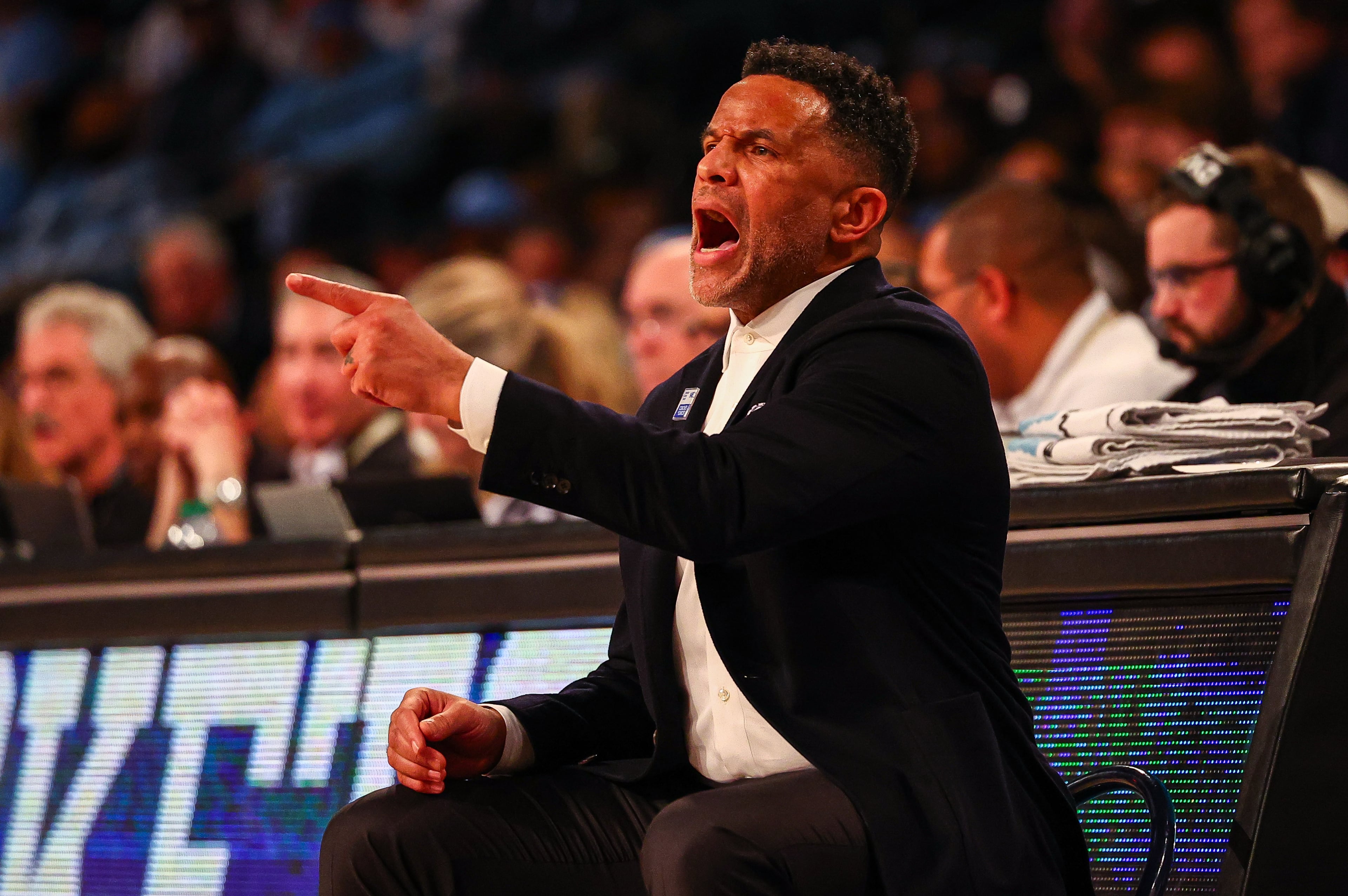Georgia Tech, Olympic coach Nat Page on impact of postponement of Tokyo Games

Tuesday’s postponement of the Tokyo Olympics carries implications that may take months to sort out. For one of the highest-achieving athletes ever to compete for Georgia Tech, the delay could help in her pursuit of what would be a monumental accomplishment.
Chaunté Lowe, a four-time Olympic high jumper and Tech’s first female Olympian, is pursuing a fifth Olympic berth after she was diagnosed with breast cancer in June.
“She has time now, which is good,” Lowe’s coach, Tech assistant track and field coach Nat Page, told the AJC. “She’s gotten back into some pretty good shape, but another year would be fantastic.”
The U.S. record holder in the high jump (6-8 3/4), an eight-time national outdoor champion and a bronze medalist at the 2008 Olympics, Lowe underwent a double mastectomy in July, followed by chemotherapy. She would have competed for the Olympic berth in June at the U.S. Olympic Trials, an event now rescheduled with the postponement of the Olympics to 2021 because of the coronavirus pandemic.
“So now she can really take her time and get back to strengthening and fine-tuning all the points that she needs to in regards to being ready competitively,” Page said.
Lowe, 36, lives and trains in the Orlando, Fla., area. Lowe, whose maiden name is Howard, is married with three children. Last fall, in an interview for a Tech publication, she spoke of her desire to make a fifth Olympic team and use it as a platform to share her experience and the importance of early detection of breast cancer.
“If I could be that voice to make people pay attention to their body, that would be a great reward,” she said.
Page, who has coached five Olympians and has been at Tech since 1996, was named in October to the coaching staff for the U.S. Olympic track and field team, overseeing the men’s jumps. Besides Lowe, he is coaching Tech triple-jumper Bria Matthews and former Tech hurdler Jeanine Williams, both of whom are also chasing the Olympics, Matthews for the U.S. and Williams for Jamaica. Both have posted qualifying marks for their respective national Olympic trials.
Page had no issue with the postponement.
“We’ve just got to figure out a plan to train and compete,” he said. “It didn’t shock me, since we were going through this thing with the virus going around the world. Health is first. So long as it wasn’t canceled, I was fine, the athletes were fine.”
Page, like other coaches across sports, is in a position of trying to continue coaching while waiting for authorities to determine that daily routines such as practices and meets can resume. Page was with Matthews en route to the NCAA indoor track and field championships March 12, the day that the NCAA canceled all remaining championship events for the winter and spring.
Matthews was one of two Tech athletes – distance runner Nicole Fegans was the other – who were to compete. Both were to compete as ACC champions, Matthews in the triple jump and Fegans in the 3,000 meters.
“We had just touched down,” Page said. “I think by the time we got our luggage, we heard the news.”
The uncertainty has continued since. Page has given his Tech athletes workouts to follow away from campus.
“Most of them have gone home, and so I always tell them, ‘If you can’t get to a track, find a field where there’s a park or something, and we can just do straight runs and (plyometric exercises) and stuff like that,’” he said.
It occurred to Page that the postponement of the Olympics could be a benefit to his Tech athletes, too. They now have extra time to continue training and earn qualifying marks for the Olympic trials.
“And then for freshmen or even sophomores, here’s an opportunity to compete at two Olympic trials because now the next Olympic Games will be three years later,” Page said.
It’s perhaps added motivation for Yellow Jackets athletes as they train away from campus.
“I’m sure it’s easier for them to just look at their workout and sit on the sofa,” he said. “But I’m hoping that their mindset is better than that.”



